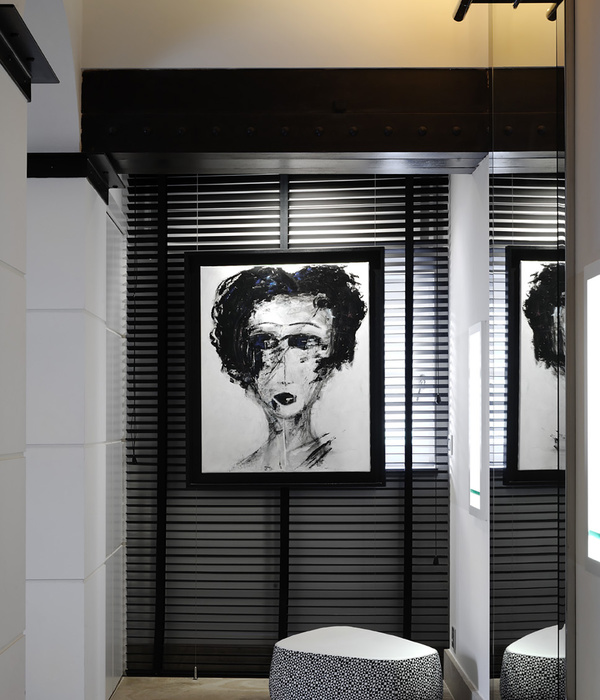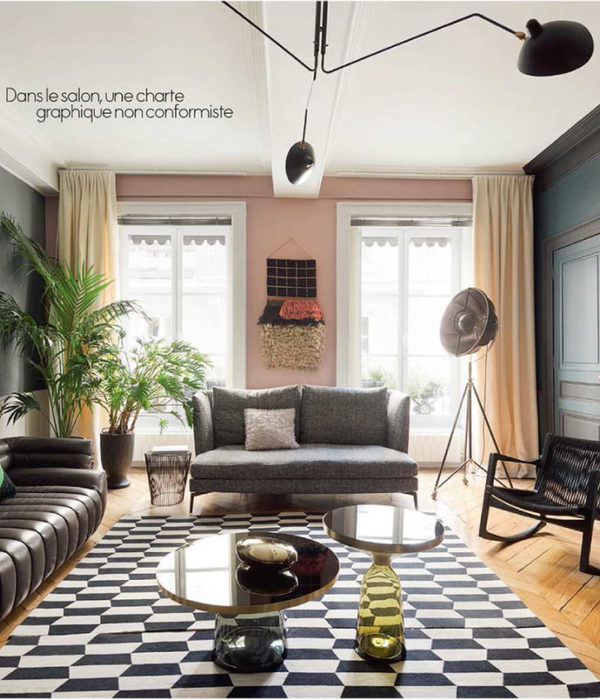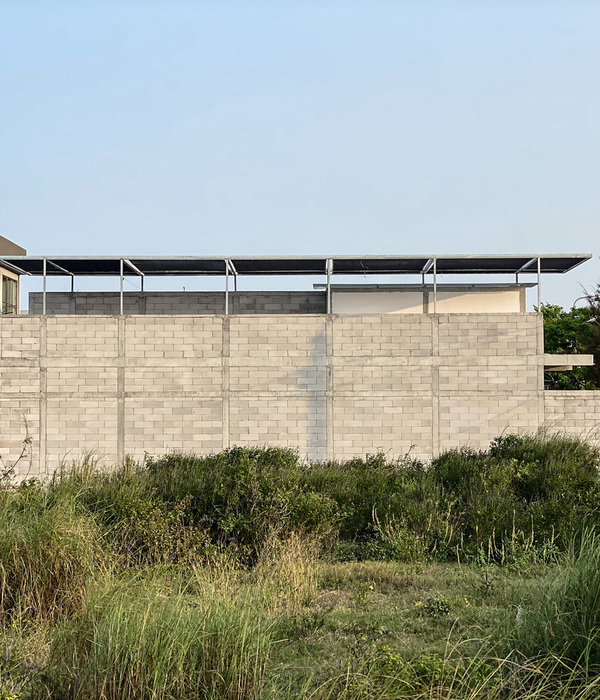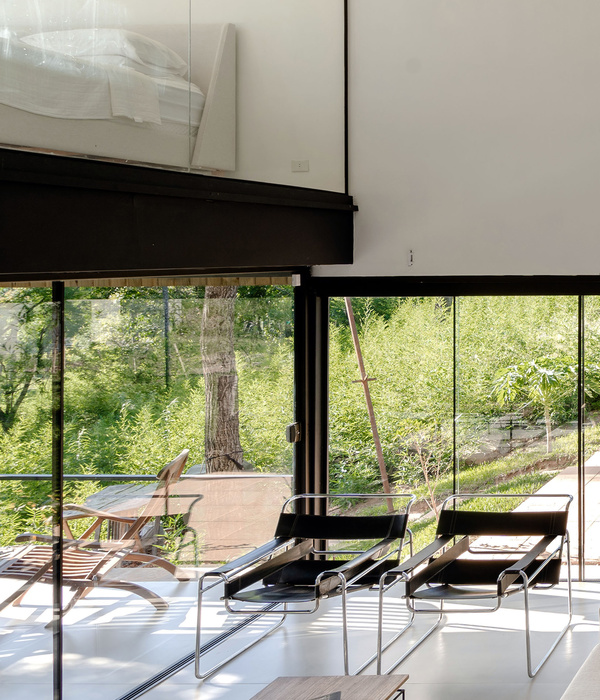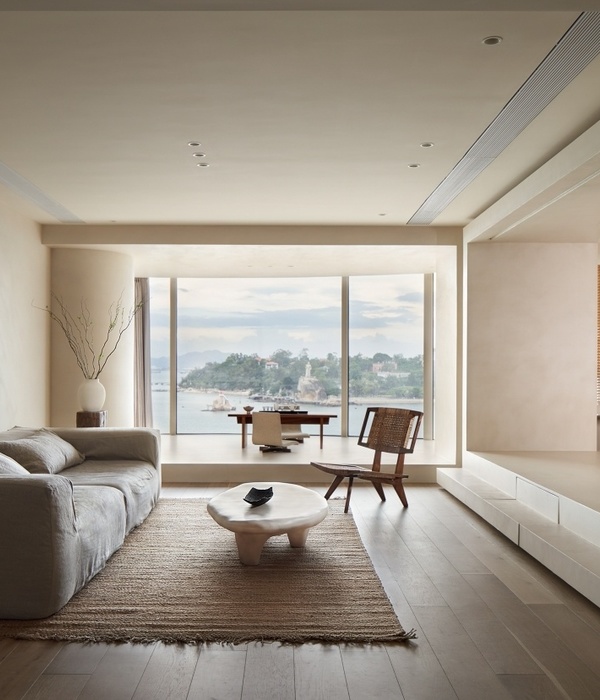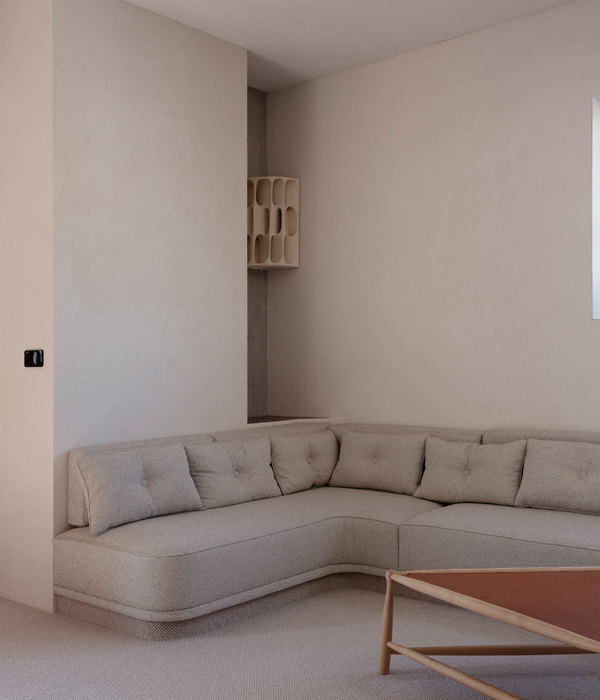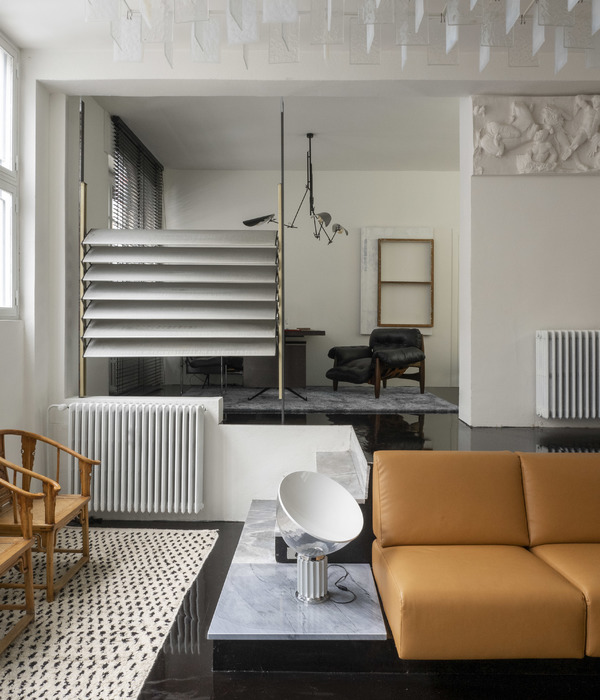- 项目名称:美国Topo住宅
- 设计方:Johnsen Schmaling Architects
- 位置:美国 威斯康星州 布卢芒
- 分类:居住建筑
Topo House
设计方:Johnsen Schmaling Architects
位置:美国 威斯康星州 布卢芒
分类:居住建筑
内容:实景照片
工程师:Larson Engineering
图片:20张
摄影师:John J. Macaulay
这是由Johnsen Schmaling Architects设计的Topo住宅,周边是连绵起伏的山丘和冰河景观。设计最初使用一系列折叠式平面贴合不同的地形进行布局,形成低矮的住宅造型,部分房间掩藏在如同绿色地毯慢慢升起的铜质屋顶之下。该项目展示了建筑如何与场地融合为一体,模糊了景观与建筑、自然与构筑的界限。
该建筑使用了闭合循环的地热系统进行加热和冷却,夏天时机械冷却负荷很小,因为极小的建筑占地面积和庭院空间提供了高度通风条件。建筑外墙使用了保温材料,屋顶种满了植物,住宅低处最大程度减少雨水径流,进一步增强围合结构的热工性能。多余的雨水会被雨水花园收集,从而慢慢渗透到地面。室内使用了再循环热水系统和地流量固定装置,将水消耗量降到最低。
译者: 艾比
The Topo House sits in the unglaciated landscape of Wisconsin’s “Driftless Region,” an area with softly rolling hills and tight ravines. Based on early conceptual studies interpreting the site’s distinct topography as a series of folded parallel planes, the house forms a low-slung, partially submerged building volume with a meticulously detailed copper roof plane that slowly peels itself up from the ground and extends the adjacent fields as a green carpet over the lower portion of the house.The project demonstrates how a building can literally merge with its context, blurring the boundaries between landscape and architecture, between nature and tectonics.
The program is organized in two staggered bars with a total area of 3,300 sf. Small exterior courtyards carved out of the building volume create an amorphous footprint whose ambiguous perimeter is normalized by the continuous copper roof ribbon, which gradually rises and ultimately terminates in a dramatic cantilever over the large south-facing vista terrace.
The courtyards – one covered, the other two open to the sky – function as sheltered outdoor rooms that provide protection against the area’s strong and ever-changing winds. On the inside, rooms are interconnected to create a continuous spatial meander that traces the site’s topography: the program is distributed on five individual floor plates, each one of them separated from the next by several steps, creating a progression through the house that leads from the entry at the lowest elevation to a small observatory at the top.
Echoing the dramatic surface deformations that occur when wind blows over the crops and grasses of the surrounding prairie, the building skin – a high-perfomance ventilated rainscreen system with concrete fiber panels – is organized by 190 individually shaped black-anodized aluminum fins of interrelated contracting and expanding shapes.Depending on the time of the day and the angle from which they are viewed, the fins create a constantly changing veil whose shifting geometry subverts the volumetric purity of the house itself. The rainscreen system is complemented by textured cast-in-place concrete walls whose deep, randomly spaced reveals juxtapose the consistent rhythm of the vertical fins.
The house is entirely heated and cooled by a closed-loop geothermal system; mechanical cooling loads in the summer are minimal because the narrow building footprint and the shaded courtyards facilitate a high degree of cross-ventilation. Using soy-based closed-cell foam insulation, the ventilated rainscreen walls achieve an R-value of 35. The vegetated roof over the lower portion of the house minimizes stormwater run-off and further increases the envelope’s thermal performance.
Remaining stormwater is diverted into raingardens, where it can slowly percolate into the ground. Inside, a re-circulating hot water system and low-flow fixtures reduce water consumption to a minimum. The landscape around the building is left natural and utilizes a restrained palette of drought-resistant native grasses, gravel, and permeable pavers.
美国Topo住宅外观图
美国Topo住宅外部局部图
美国Topo住宅
美国Topo住宅图解
{{item.text_origin}}



